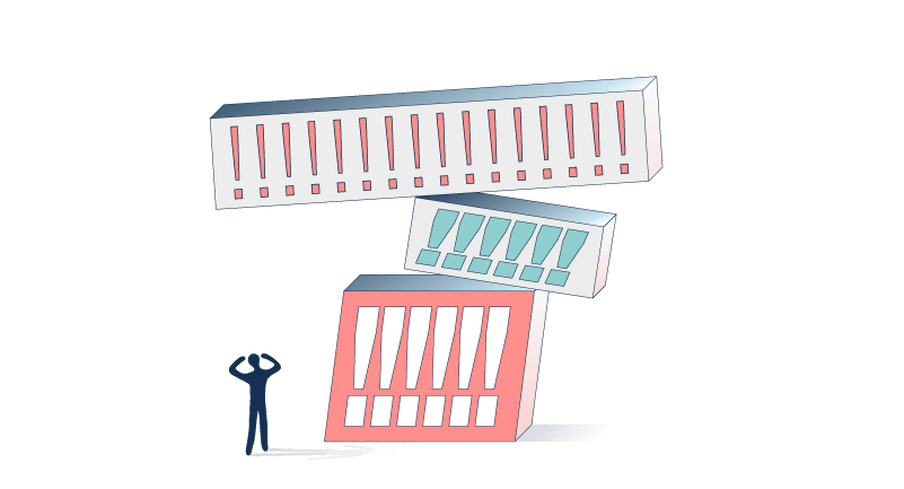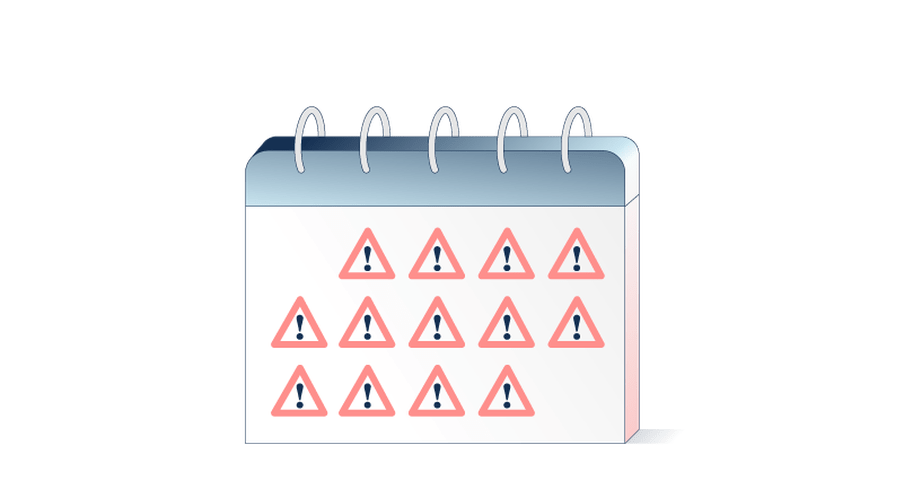The above realisation is what inspired me to found the Dutch journalism platform De Correspondent in 2013, promising to be “an antidote to the daily news grind” for its readers. So many people responded that we even set a world record in crowdfunding a news site. Due to De Correspondent’s success, we’re launching The Correspondent, bringing unbreaking news to the English-speaking world.
That the news in its traditional forms is the problem with journalism actually dawned on me much earlier, when I joined the editorial department of a major Dutch newspaper in 2006. I was 24 and studying philosophy when I landed a job covering domestic affairs. Like any good philosopher, I immediately started asking: what is this thing called news that I’m supposed to make here? Scrutinising the practices of my colleagues, I eventually distilled a definition that I think describes news pretty accurately.
News is all about sensational, exceptional, negative current events – and those five words capture precisely the wrong with it.

It only takes a few jihadis to fill a news cycle
Let’s take each word in turn. First, sensational: news is generally that which is shocking, scandalous, or appalling enough to evoke comment. It often revolves around what’s most visible, one might even say explosive. That is why terrorist attacks are often news, says former Guardian journalist Joris Luyendijk, but occupations of foreign lands are not. Attacks are shocking, highly visible events, occupation much less so. Put another way, it’s easy to capture a bus exploding, yet very hard to film the suppression of everyday freedoms.
Expanding on this idea, the news also mostly revolves around what’s highly exceptional. We may be surrounded by millions of peace-loving, law-abiding, hate-fighting, unity-advocating fellow citizens, but it only takes a few neo-Nazis, jihadis or Ku Klux Klanners to fill a news cycle twenty-four seven.
News is obsessed by what’s recent. Almost everything that qualifies must be something that has just now taken place
Not only does this skew our view of other human beings, news also makes us blind to the influential that is not exceptional at all. That’s why we often don’t hear about major developments until something highly improbable happens – events the Lebanese-American philosopher Nassim Taleb dubbed “black swans”.
The 2008 financial crisis, for example, didn’t become major news until the Lehman Brothers investment bank filed for bankruptcy — a highly unusual event. But the lead up to this event (banks that kept piling risk on top of risk, little by little, day by day) never made it to the front page because of the fundamental mismatch between what was happening – gradual risk increase – and the way news commonly signals what is happening – event-driven sensationalism.
The news is also, almost without exception, negative. “If it bleeds, it leads” is a journalism catchphrase. In other words, good news is no news. People who keep up with the news are, as a result, quick to think the world is getting ever more dangerous — though in fact the opposite is true. What’s more, the news constantly gives us the feeling that people can’t be trusted: they commit fraud, they’re corrupt, they steal from one another, they blow themselves up. The reality is that the overwhelming majority of people are good and want to do right by others. But that’s not news, is it?
News media is obsessed by what’s recent. Almost everything that’s news must be something that has just now taken place. But the most recent thing isn’t by definition the most influential.
Everything in the world has a history. And that history determines in large part why something happens. Because the news usually keeps its eye trained on today, it blinds us to the longer term, both past and future. Informing us about power structures that have grown over time, such as the historical roots of racism, or alerting us to gradual societal changes, like the financialisation of our economy, is simply not natural to the forms and rhythms of daily news.
The news actually fails to deliver on its single biggest promise: to tell us what’s happening in the world
Lastly, the news revolves mainly around events. It has to have a ‘hook’, to use journalism jargon, a reason to report it now instead of later. That sounds logical, but it means that trends rarely make the evening news. For trends aren’t instances; they progress over time. That’s why the nightly news always ends with the weather, but never with the climate. You can’t say: “Today the climate changed,” even though, over time, it actually has.
The focus on hooks is why much of the news consists of what we might call calendar journalism: recurring, often planned events that serve as a reason to elevate something to the status of news. Consider press conferences, quarterly earnings, think tank reports, commemorative services, and anniversaries. Or a president’s tweets. These repetitive events in essence mean you can pencil in much of the news in advance, making it something that isn’t “new” at all.
Debunking real news
When you put all this together, it means the news actually fails to deliver on its single biggest promise: to tell us what’s happening in the world. Instead we know about unusual, terrible, rapidly forgotten events.
In contrast to fake news, which is misleading because it’s simply untrue, real news misleads us in a more subtle way: it gives us a deeply skewed view of probability, history, progress, development, and relevance.
If you don’t read newspapers, you’re uninformed. If you do read newspapers, you’re misinformed
That’s why we’re quick to think that most terrorists are Muslims, even though that isn’t true. Or that the world is only getting worse, even though that isn’t true. Or that terrorist attacks pose a greater threat to our well-being than sugar, even though that isn’t true. Or that the financial crisis started in 2008, even though that isn’t true. Or that crime is going up in the United States, even though that isn’t true.
In short, our news obsession takes away from what journalism as a practice is supposed to be about: helping the public understand the world well enough to join in discussion about what is to be done.
As the saying goes: “If you don’t read the newspaper, you’re uninformed. If you do read the newspaper, you’re misinformed.”

The news is a health hazard
To be clear: when I say “news” I don’t mean “all journalism”. There are countless types of journalism that are thorough and informative, and there are ten of thousands of journalists committed to public service who do invaluable work. Nor is my criticism of the news meant as a dismissal of “the media,” as that phrase is now commonly understood. Like many of my colleagues, I am worried by the wave of mistrust toward journalists that’s currently sweeping the United States and the world at large, spurred on by a political elite that hopes to exploit this suspicion of the media.
But of all the forms that journalism can take, the news is by far the most influential. We consume it in unbelievable quantities: on average Americans spend almost 70 minutes a day following the news in some form — that’s more than four full years across an average lifespan. As a result it dominates our water cooler conversations, largely sets the political agenda, and heavily shapes our view of humanity and the world.
And not in a good way. The ultimate effect of our excessive news consumption — more accurately, our news addiction — is to make us afraid of other people, skeptical of the future, and cynical about our own ability to affect it. Day in, day out, the news confirms our most stubborn prejudices and our greatest fears. It makes us pessimistic and suspicious. It even makes us unhappy.
In short, the news is bad for us, as individuals and as a society. “News is to the mind,” the Swiss writer Rolf Dobelli once wrote, “what sugar is to the body.” Really, the news should come with a surgeon general’s warning.

We need an antidote to the news
To help temper the negative effects of the news, I founded the Dutch journalism platform De Correspondent six years ago. The idea behind it was simple: let’s redefine the news together — from the sensational to the foundational.
The response was overwhelming: nearly 19,000 founding members joined our cause and helped us achieve a world record in journalism crowdfunding. We raised $1.7 million in a country of just 17 million people. In six years our member base has grown to over 60,000 today, making us one of the fastest growing, community-funded news sites in Europe.
These members enable De Correspondent to be a fiercely ad-free, in-depth journalism platform, making good on our slogan on a daily basis: being “an antidote to the daily news grind.”

The problem isn’t liberal bias, it’s recency bias
That slogan perfectly captures our mission: to serve as a remedy to the worst effects of the news. Central to that is a different definition of news. Instead of looking only at what happened today, we look at what happens every day. When you do that consistently, it makes for a different view of the world.
Because why is it that after nearly every major societal shock, from weapons of mass destruction to the financial crisis to Brexit to Trump’s election, people in the news media ask the same question: why didn’t we see this coming?
The most common answer is ideological bias. Journalists are “too left-wing” or “too liberal” and so they don’t want to acknowledge what is really going on. I think there’s a better answer. The news media have the wrong definition of news.
Lehman Brothers’ fall, Britain’s break from the EU, and Trump’s election are indeed spectacular, exceptional events, but they are also the result of slow, unobtrusive, systemic trends. Phenomena that take place not today but everyday, and therefore never develop a hook that qualifies them to be presented as news. Phenomena that are also too everyday to generate sensational headlines or clicks.

Going from the sensational to the foundational, with the help of readers
At The Correspondent, we try to tell precisely those stories that aren’t news, but news-worthy nevertheless. Or, as we often say, that reveal not the weather but the climate. Those stories are written by correspondents who don’t have a news-driven schedule to meet, and thus can take the time they need to develop an area of expertise and learn to recognise and describe the truly influential developments of our time. Our ultimate goal: to replace the sensational with the foundational and the recent with the relevant.
To achieve that, we’re following the example of our Dutch sister site, De Correspondent, where we’ve had to learn new journalistic habits. And even more important: we’ve had to break old ones.
The key habit we had to break was the journalist’s traditional bar for relevance and timeliness. There’s a kind of unspoken agreement among journalists on what exactly constitutes the most important “issues of the day” — and that unspoken agreement is tightly linked to the fact that journalists are themselves extremely heavy news consumers.
Their own excessive news consumption predisposes journalists to believe that what’s happening in the world right this instant, and what’s the most important story to tell right now, is whatever’s getting a lot of airplay in other media. That makes it easy and safe to do the same. Then no one can be blamed for over-reporting it, because everyone is responsible for that.
Our challenge is to do what we do best, and link to the rest
To put an end to this self-fulfilling prophecy, the first thing we do is teach our correspondents to seriously moderate their own consumption of news. We encourage them to seek inspiration for article ideas outside of the day’s newspapers, talk shows, and tweets — by going out into the streets, by reading books, and, above all, by asking our readers the question: What do you encounter every day at work or in your life that rarely makes the front page, but really should?
Now, it may sound easy to ignore the news, but it turns out to be quite a challenge. Journalists are quick to fear they’re missing out: there’s no sin more cardinal than letting a competing news outlet take centre stage with breaking news you don’t have yourself.
Even at De Correspondent, we still wrestle with this problem on occasion. Especially when events happen that rivet the world’s attention, such as terrorist attacks. But those are precisely the moments we guard against, lest we reflexively fall back into the habit of reporting on mayflies.
We resist that urge not by asking ourselves “What are we going to do with this news?” but by asking “What do we have to add to this news that isn’t available anywhere else?” If the answer is “nothing,” then we won’t report on even the most major of news events.
That’s why in 2016, on the day of the tragic bombings in Brussels, just 125 miles from our office in Amsterdam, we didn’t publish a word. Instead, we referred our members to the best reporting by other outlets, in full keeping with the philosophy of media professor Jeff Jarvis: “Do what you do best, link to the rest.” Our readers appreciated this so much that we welcomed more new members that day than ever before.
Instead of only presenting readers with the finished product, our correspondents share their plans and ideas
That change of habit — that redefinition of relevant — has sparked a deeper and, we believe, profoundly positive change: it’s no longer our correspondents’ goal to be the first, get a scoop, or be picked up by other outlets. Their goal is to thoroughly ground themselves in the major developments of our time and, along the way, share their own learning curves with a growing community of followers.
To get there, we’ve also had to train our correspondents to stop thinking in completed stories. Most newspaper articles and television news items can’t be published or broadcast until they’re complete. But that limitation is absent online, where news can be an unfolding process instead of a static snapshot. Instead of only presenting readers with the finished product, our correspondents share their plans and ideas, and then provide interim updates by keeping a public notebook.
This interactive way of doing journalism has a major advantage: our readers can follow the same learning curve our journalists do. Instead of assuming all kinds of background, as the news often does, our reporting allows the reader to join in at his or her own level of knowledge, and grow from there.
And often, that starting point is even higher than that of the journalist. By shining a public light on the journalistic process instead of hiding it behind the wizard’s curtain, we give our readers a way to share their specific knowledge and experiences with our correspondents.
And so we’ve trained our journalists to no longer view their readers as passive consumers of information, but as active contributors of expertise.

100 readers know more than one journalist
Our members play a crucial role in discovering and exploring the everyday systems that are the focus of our journalism. At De Correspondent we believe that a hundred readers, by definition, know more than a single journalist. On our platform these everyday experts share their knowledge and experience with our correspondents.
For example, hundreds of teachers, students, and school principals help our Education correspondent understand what’s happening in our schools, and hundreds of doctors, mail carriers, and train conductors help our Public Services correspondent understand the issues at play in our country’s public sector. We ask our members: “What do you encounter every day at work or in your life that rarely makes the news, but really ought to be on the front page?” Their answers are often the start of discoveries we could never have made alone.
It is by now no exaggeration to say that the knowledge of our more than 60,000 members has become indispensable to our journalism. Not just because they share what they know, but also because they are willing to pay $80 a year to do so! Their willingness to pay lets us keep De Correspondent fully ad-free. Beyond being pleasant to the eye — no blinking banners screaming for attention — it’s also an essential condition for the kind of journalism we aspire to make.
Because the sensationalism and hypersensitivity of our daily news feeds is caused in large part by the underlying business model. Since the 19th century the news has been largely funded by advertising. That means the real product isn’t so much the news itself, but the public’s attention.
This attention economy is the breeding ground for today’s screaming front-page headlines and the clickbait glutting our social media. These incentives are less present at De Correspondent because the readers themselves are our clients, and not the advertisers.
This is a big reason we can shift from the sensational to the foundational and publish an antidote to the daily news grind: we have members who grasp the connection between the kind of journalism we practice and the elimination of that third party in between journalists and readers, the advertisers.

Believing in progress
This kind of journalism, in which journalists don’t just produce and readers don’t just consume, is ultimately rooted in an underlying conviction: that by sharing our knowledge and experience with each other, we can leave the world better than we found it. Said another way, The Correspondent is based on a belief in progress.
That belief isn’t a baseless hope; it isn’t even a political stance. Believing in progress is a rational, factual conclusion. Because the history of humankind is a history of progress.
The reason we’ve evolved from nut-cracking apes into rocket-flying humans is as simple as it is ingenious: there is no species on Earth as good at sharing knowledge as we are.
No single individual human knows how to build an iPhone, a rocket, or a system of justice, because all of them are the product of shared knowledge. This simple principle of sharing what we know enabled us to keep taking the next step in specialising in what we’re best at. Together, we progressed.
Humanity is best served by sharing knowledge and experience, instead of outrage and fear
But, crazily enough, fewer and fewer people believe this progress still exists. For the first time since the nineteenth century, when belief in progress became common, a majority of the population in 25 countries believes the world is headed in the wrong direction. Also gaining ground is the idea that the lives of our children and grandchildren will be worse than our own.
And one of the worst enablers of this waning belief in progress is — you guessed it — the daily news that we consume. Because the news mostly disseminates outrage and pessimism, not knowledge and confidence. As a result we’re less informed about the world we live in and more skeptical of our ability to change it.
I believe there’s another way. I believe that humanity’s fate is best served by sharing knowledge and experience instead of outrage and fear. That together, we can still understand the world. And that a world we understand is a world we can change. Together, we can still make progress.
Now that’s real news.
This article was first published on Medium.com, and has been modified from its original version.


